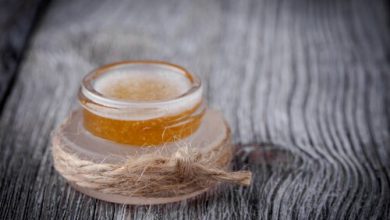Locking Your Child At Home Does Not Protect Him

Locking your child up at home to avoid harm or annoying situations does him no good. Every parent cares that their child is always safe. Many times it is not achieved because, as we well know, children also have to make their own mistakes, make mistakes and stumble.
However, some parents do not want to admit all this and what they do is lock their children at home. They do it with the best of intentions, but this can stunt the child’s normal development. The reality is that overprotection damages the child’s development.
Locking your child at home does not protect him
Locking your child up at home does not protect him; avoid interacting with other children his age. This is a very important part of your childhood. You have to relate to others and experiment. If we don’t allow this, they can have serious socialization problems in the future.
In addition, locking up is not a solution to what parents call “the dangers of the world.” Sooner or later, the children will leave home or study far away. Then what will happen? Who will be there to protect them? We are not aware that, if we protect the little ones too much, we will cause them to find themselves unable to face the different circumstances that will sooner or later face them.
I know the situation of a very close friend who had to suffer this kind of confinement. She explained it to me in the following way:
When she had to face the world, she felt helpless, very insecure and full of doubts. The confinement caused her many more problems than, surely, her parents thought.
Children and relationships
As we have seen, locking up children can cause them to transform into adults full of insecurities and doubts. When they no longer have that support that protects them from everything, they feel vulnerable in the most normal situations.
Therefore, locking up children is not a valid solution. They need to relate from a very young age with their peers to begin to develop all the skills and techniques that will help them deal with all kinds of situations. Do you want to know what it is that you take from your son every time you lock him up at home?
- You prevent them from learning to solve problems and solve situations on their own. All this, in addition, can make you rebel against rules that you have not had to face because you are inside a bubble.
- You prevent them from learning to regulate their emotions, for example anger or anger. Children will learn to do this if they interact with others, because they will know that they will have to control them if they want to get out of a complicated situation, such as an argument.
- You prevent them from being independent, so they will feel helpless the moment this happens.
Furthermore, a consequence of this is that you will also prevent them from being responsible ; so they will not be aware that they will have to accept the mistakes they make. These are some normal and important situations that you will prevent your children from learning if you lock them at home.
Let the children be happy
Children will stop being happy the moment they grow up and realize all the deficiencies they have due to the confinement to which they were subjected. This will frustrate them, as it was not your mistake. The mistakes, the arguments, the problems to which they may be exposed will not weaken them, but will make them strong and prepared people to deal with other types of situations.
Also, they need to learn to make friends. This will allow them to develop different skills that will help them in later interactions with coworkers, bosses, teachers, etc. We believe that protecting is positive and we do not realize that this causes vulnerability.

Making mistakes, making mistakes, failing… all this only allows us to learn. Because we all have to experiment on our own, and the sooner we do it, the better. Are you still going to lock your child up at home in vain to protect him? Perhaps it is your own fears that are leading you to it. Let him live, experiment, learn, enjoy.









